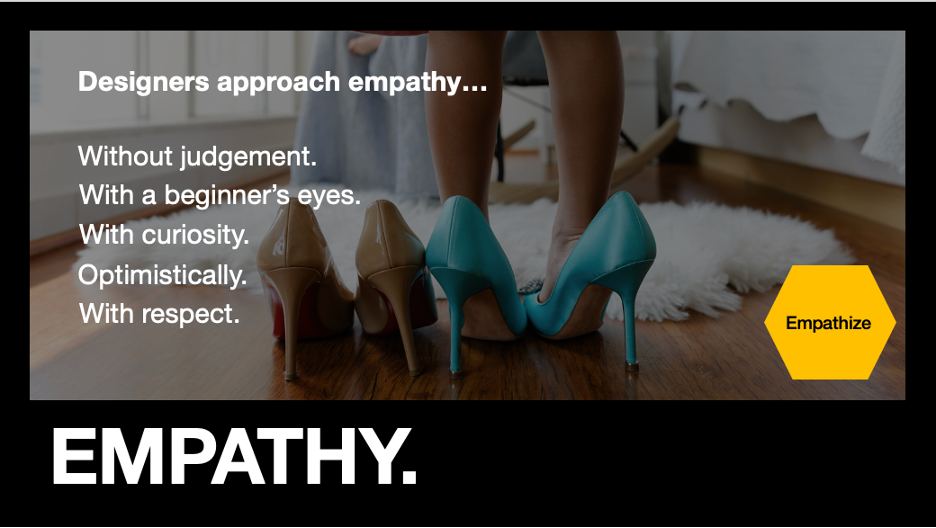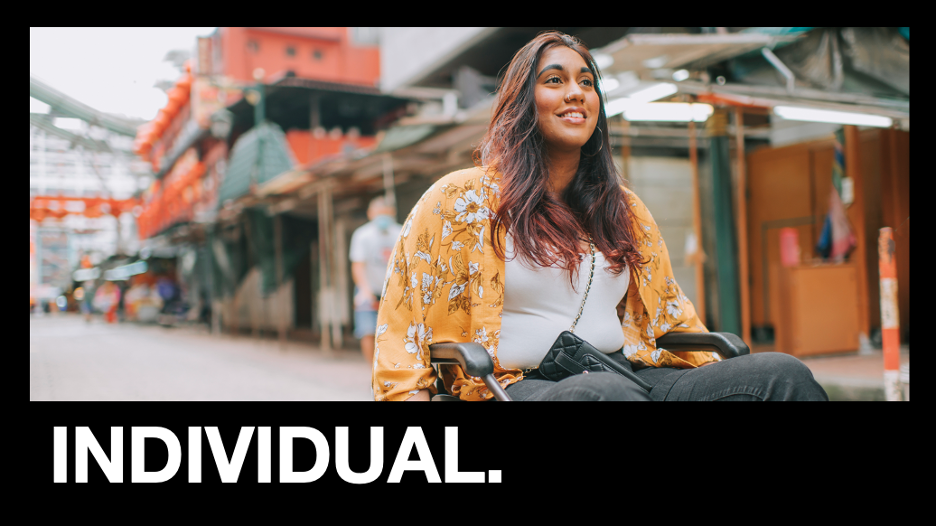
14 Jul Leading Design Thinking Workshops
The term “Design Thinking” has become ubiquitous across design. I learned the practice as part of my architectural training at the University of Virginia’s School of Architecture.
I’ve led Design Thinking workshops for corporate trainings and conferences. In the workshops, I encourage participants to recall how to “play” and remind them of the innate capabilities we all have to be creative. It’s an unflexed muscle that most of us stop using in adolescence, yet is a behavior that leads to empathy and understanding of others. This training has transformative effects on team dynamics.
Workshop format
Part One, Setting up the Framework
I present the process framework, the concepts of divergent and convergent thinking, and a series of exercises aimed to separate the connotations around artistic and creative abilities. By the end of this warmup, participants are comfortable speaking aloud in the group.
Part Two, Learning the Empathy Model
I guide participants through exercises to tap into the concept of empathy. Participants begin to look beyond “‘what they think they see”’ and practice methods for uncovering authentic customer needs.
 Presentation slide that introduces the empathy model
Presentation slide that introduces the empathy model
 Presentation slide to focus on individual and ‘edge’ needs for inspiration
Presentation slide to focus on individual and ‘edge’ needs for inspiration
Part Three, Becoming Comfortable with the “Unfinished”
In the workshop’s third part, participants get hands on with creative activities and become increasingly more comfortable with both uncertainty and sharing unfinished ideas and work products.
compounding benefits
Leading this workshop is immediately rewarding for myself and participants. I quickly see participants become “activated” with a new or refreshed awareness of our innate capabilities to creatively problem-solve.
In my organizations and on my teams, I’ve seen the training’s positive impacts on team collaboration and I’ve used it as a catalyst for shifting cultural mindsets towards design, product and development teammates.
Participants learn a new technique for approaching a development or design challenge
The activities model the possibility of working in generative spaces and increase comfort levels through practice
An exercise demonstrates the value of looking beyond assumptions and what we think we see and know (…beyond data sets or explicit feature requests)
Accolades
I learned so much from your Design Thinking workshop, especially that I need to question my assumptions! - Quynh P., federal agency developer
Thanks for a great Design Thinking session at Drupal GovCon! - Tom Selsley, UX Lead at the National Science Foundation
